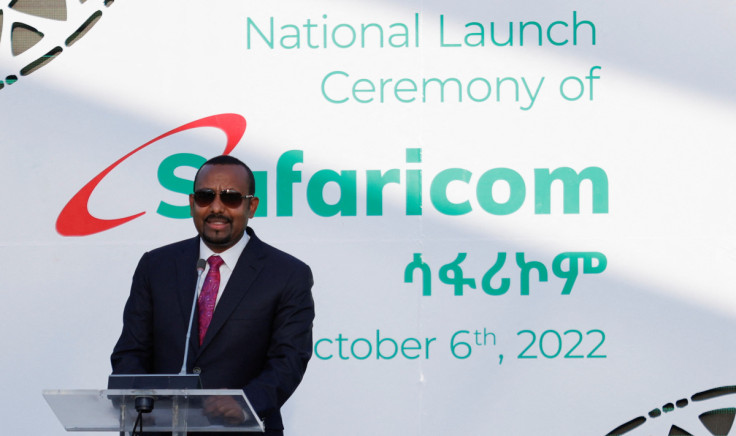First International Aid Arrives In Ethiopia's Tigray Since Ceasefire

Ethiopia's Tigray region on Tuesday welcomed the first international aid delivery since a truce to end fighting, with the International Committee of the Red Cross driving two medical trucks to the capital of the war-ravaged area.
Ethiopian Prime Minister Abiy Ahmed's government and Tigrayan forces signed a ceasefire on Nov. 2 to end two years of fighting that have killed thousands, shattered infrastructure and uprooted millions from their homes.
Implementation includes unhindered access for aid to a population facing disease and famine.
"It is an enormous relief for us to deliver this cargo," Nicolas Von Arx, head of the ICRC delegation in Ethiopia, said in a statement. "The healthcare system in the region is under extreme pressure and these deliveries are a lifeline for people who need medical help."
The ICRC described the delivery into the regional capital Mekelle as the first international aid into Tigray since a previous ceasefire broke in August.
Ethiopia's government has also begun supplying some aid.
Half of the region's 5.5 million people are in severe need of food. Aid agencies say they will not know the true extent of needs until they can access areas for the first time in months.
'HONEST' IMPLEMENTATION
"We have moved one step forward. We have discussed, agreed and signed," Abiy told Ethiopia's national parliament in his first comments on the ceasefire since it came into force.
"The next thing expected from us will be to implement honestly what we have promised to make the peace sustainable."
Abiy's war against the Tigray People's Liberation Front - the party which dominates the region - is rooted in old grievances between the political elites of ethnically-based regions.
His ascent to power in 2018 ended nearly three decades of dominance by the TPLF over Ethiopia's central government.
He accused the TPLF of seeking to reassert its power at the national level. The TPLF accused him of centralising power at the expense of the regions and oppressing Tigrayans.
A deal for implementation of the ceasefire signed on Saturday made it explicit that disarmament would happen alongside foreign and other forces, excluding the Ethiopian army, withdrawing from the region.
Troops from neighbouring Eritrea, as well as forces from other Ethiopian regions, have fought on the side of the Ethiopian army.
Analysts have raised concerns about whether the Eritrean forces will withdraw. The Eritrean foreign and information ministers have not responded to repeated requests for comment.
Abiy said on Tuesday that a territorial dispute between forces in Tigray and the neighbouring Amhara region should be resolved legally and through discussion.
Fighters from Amhara entered western Tigray in November 2020 in support of federal troops and took control of a swathe of territory they say was historically theirs. Tigrayan officials say the area has long been home to both ethnic groups.
Authorities in Amhara last week welcomed the ceasefire agreement but made no mention of the disputed territory.
(Writing by Tommy Reggiori WilkesEditing by James Macharia Chege and William Maclean)

© Copyright Thomson Reuters 2025. All rights reserved.





















